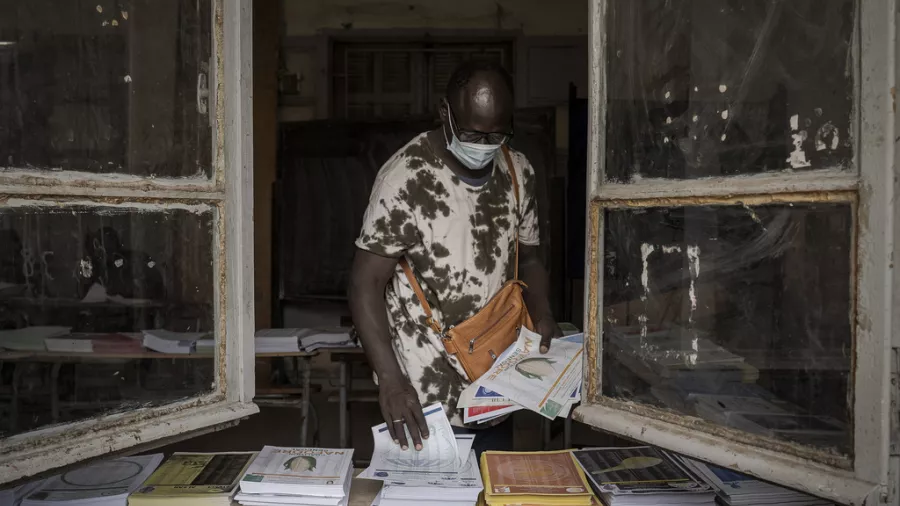Senegal: Ousmane Sonko’s Pastef party secures historic election victory
3 min read
Ousmane Sonko’s Pastef party has achieved a historic victory in Senegal’s legislative elections held on November 17, securing 130 out of 165 seats in the National Assembly. This landslide victory gives Pastef a commanding 78% majority, the largest seen in Senegal’s political history since 1988. The party triumphed across the country, winning in 40 of Senegal’s 46 departments and seven out of eight overseas constituencies, marking a decisive shift in the nation’s political landscape.
This overwhelming win provides Pastef with substantial political power, enabling the party to push forward with its proposed structural reforms. Representatives from the party have hailed the victory as a clear indication of the “massive support of the people” for their vision. Voter turnout for the election reached nearly 50%, signaling strong engagement from the Senegalese electorate.
The results of the election also led to significant losses for opposition parties, marking a dramatic reshuffling in Senegal’s political order. The coalition led by former president Macky Sall, who has been in power since 2012, saw a dramatic drop in support. Sall’s coalition now holds only 16 seats, a sharp decline from the 83 seats it previously held. This result reflects a clear repudiation of Sall’s political legacy and his coalition’s policies.
In addition to Sall’s coalition, former Prime Minister Amadou Ba’s coalition managed to win just seven seats, while the political group led by Dakar’s mayor, Barthélémy Dias, secured three seats. These results have been seen as a significant blow to the establishment, as Pastef’s success signals a shift away from the traditional political elites who have long dominated Senegalese politics.
Despite the sweeping victory, no legal challenges to the results have been announced as of yet. The final official results are expected to be confirmed within five days, although the outcome is widely anticipated to hold. The lack of immediate disputes suggests that Pastef’s victory is being accepted, at least for now, by both its supporters and its opponents.
The scale of Pastef’s win marks a turning point for Senegal’s political future. Under the leadership of Ousmane Sonko, the party has positioned itself as a strong alternative to the ruling political establishment. Sonko, a former civil servant and critic of government corruption, has gained significant traction among Senegalese voters who are seeking change and reforms in a country that has long been known for its political stability but has also faced increasing concerns about corruption and economic inequality.
Pastef’s victory is particularly significant as it reflects a growing desire for a new direction in Senegal’s governance. Sonko’s platform has resonated with voters who are frustrated with the status quo, including the slow pace of reforms, the high levels of youth unemployment, and the perceived lack of accountability in the ruling parties. As Senegal grapples with these challenges, Pastef’s success gives the party the mandate to push for policies aimed at addressing these issues head-on.
With this parliamentary majority, Pastef is now in a strong position to pursue its reform agenda. The party has emphasized its commitment to tackling corruption, promoting youth employment, and advancing social justice. However, the victory also places Pastef under scrutiny, as it now faces the challenge of delivering on its promises and managing the expectations of its supporters.
The election results also suggest a broader regional trend, where opposition movements in various African countries are gaining ground against long-established political elites. Senegal’s election is part of a wider wave of political change across the continent, with voters increasingly pushing for new leadership that prioritizes transparency and accountability.
As the dust settles after the election, the next steps for Pastef and Ousmane Sonko will be critical. While the party’s historic victory has given it the political power it needs to implement its agenda, the challenge will be in navigating the complexities of governance and delivering on its promises. The coming years will reveal whether Pastef can translate its electoral success into tangible improvements for the people of Senegal.
In conclusion, the November 17 legislative elections in Senegal have reshaped the political landscape, with Ousmane Sonko’s Pastef party securing an unprecedented victory. This landslide win provides Pastef with the political mandate needed to pursue reforms, signaling a new chapter in Senegal’s democratic journey. With strong public support behind them, the coming days and months will determine how effectively Pastef can translate its success into meaningful changes for the country.







